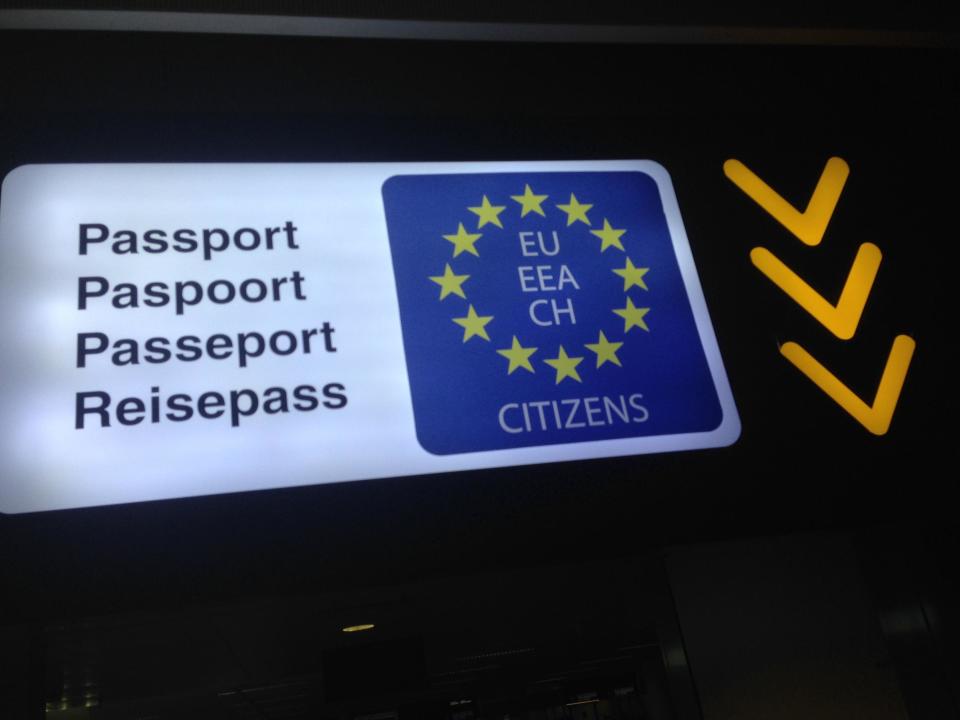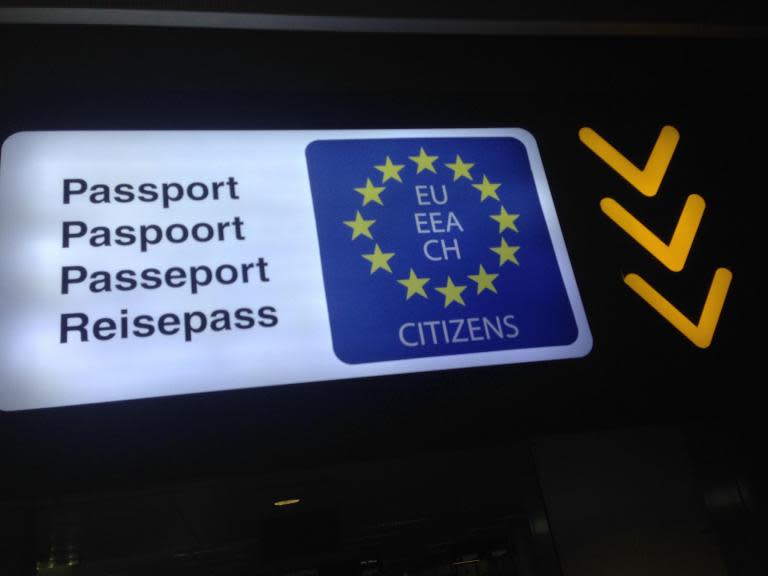Brexit: UK visitors to Europe will not need visas – for now
The College of Commissioners – the political leadership of the European Commission, effectively the EU’s cabinet – has announced how British visitors to the EU will be treated in the event of a “no-deal” Brexit. These are the key aspects.
What were the options?
The default position for a third country is that it joins the “visa required” list, along with people from China, Russia, India, Thailand, and all of Africa. This would have required travellers to apply between three months and 15 days before the intended journey, to provide evidence of travel insurance, and to pay €60 euros for adults and €35 for children.
But the commissioners decided that the UK could be placed on the visa-free list, along with people from the Americas, Japan, South Korea, Malaysia, Australia, New Zealand and several dozen other countries.
The decision is contingent upon the UK allowing Europeans to visit without visas, which the British government has already indicated will happen.
Does that mean things stay the same?
No. At present a British passport allows the holder to travel and stay in any EU country. The only check border officials may make is to ensure that the passport belongs to the person.
But third-country visa-free status means there is no automatic right of entry. After 29 March 2019, British visitors will be limited to a stay of 90 days in any 180-day period. In addition, the passport must have at least three months’ validity remaining.
Border officials may ask for evidence of “sufficient means of subsistence” for the intended stay and return – such as return ticket, accommodation reservations or an invitation letter to a conference.
What about working in the European Union?
That will no longer be an automatic right. The EU says: “You can come as a tourist, to visit friends or family, to attend cultural or sports events or exchanges, business meetings, for journalistic or media purposes, medical treatment, for short-term studies or training and any similar activities.
“However, the visa waiver does not apply to persons travelling for the purpose of carrying out a paid activity in the Member States, i.e. for those who come to work in the EU.”
And British people living but not working abroad?
UK citizens living in the European Union, including those who have retired, will encounter much more tangled red tape. National governments will specify their own rules.
This is all assuming there is no deal. But assuming an agreement is reached, will things remain the same?
No. The freedom of movement will be curtailed.
The European Commission says: “EU rules on non-EU nationals travelling to the EU, such as those on border control, would of course apply to UK citizens once they are no longer EU citizens.”
Several years down the line, British travellers will face more bureaucracy when the EU’s new ETIAS (European Travel Information and Authorisation System) system comes in.
All UK travellers will have to apply in advance and pay a fee to have their journey authorised.
What will the rules be for European visitors to the UK?
While visas will not be required, it will be more difficult for many Europeans to come to the UK on holiday. As stated in a leaked Home Office document: “We intend to require all EU citizens to travel on a passport.”
Currently EU citizens with national ID cards can visit more than 30 foreign nations: the other members of the union, geo-political oddities such as Andorra, assorted Balkan states and the former Soviet Republic of Georgia.
As a result levels of passport ownership in countries with ID cards are lower than in Britain. After the UK leaves, the number of possible destinations for ID card holders will drop by one, but there will still be plenty of choice.
Although some European citizens will go through the hassle of getting a passport just to visit the UK, many may not bother. This is a cause for concern for Britain’s inbound tourism industry.
Does this apply to the Republic of Ireland?
No. Relations are governed by the Common Travel Area (CTA) agreement. Free movement will continue. The UK government says: “The CTA was developed to facilitate the principle of free movement for British and Irish citizens between the UK, Ireland and the islands. It ensured that British and Irish citizens continued to benefit from a mutual enjoyment of rights.
“There are no routine passport controls on routes from within the CTA to the UK.”



